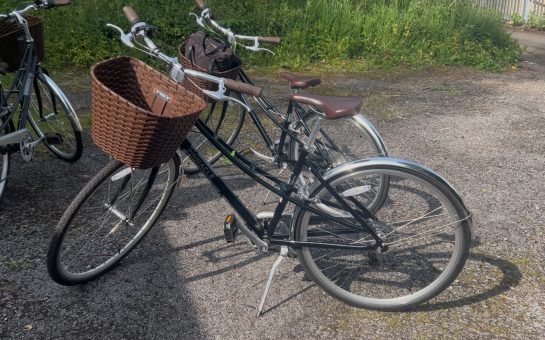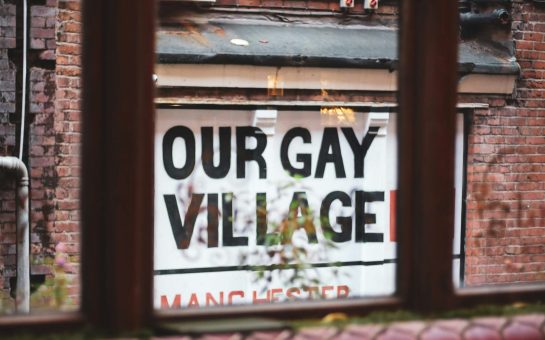An official pre-lockdown Government study has revealed that two thirds of adults feel cycling is dangerous.
The figures from the National Travel Attitudes Study, believed to be conducted in January and February this year, revealed that 66% of adults felt it was “dangerous to cycle on the roads.” An increase of 5% from the year before.
The data also showed that nearly all (96%) of local authorities had less than 20% of their adult population cycling at least once a week.
However, since the implementation of lockdown measures in March to combat the Coronavirus pandemic, the country has seen a cycling boom with more people swapping four wheels for two as bike shops were considered essential businesses.
Statistics from April this year, according to the Bicycle Association, showed overall sales of bikes reach 60%, more than doubling the total of bikes sold between the prices of £400 and £1000 than in April 2019.
The two sets of data suggest that there has been a shift in attitudes towards cycling as well as cycle centred Government policy.
To understand this change clearly, MM spoke to Nick Hubble, a founding member of Manchester campaign group Walk Ride GM, and Chris Boardman, Greater Manchester’s Cycling and Walking Commissioner, for their thoughts on the figures.
On the pre-lockdown figures in isolation, the campaign leader said: “Those figures are no surprise to me, they have been like that for years.
“From my experience if you ask many people why they do not ride a bike, it’s because they don’t feel safe.
“The reason for that is because over the years the Government has not invested enough money into infrastructure to enable people to cycle and give people the confidence and the safety to get on a bike to make a short journey.
“On the one hand, we have created a safe environment in our towns and cities that is convenient for motor cars, but simultaneously this has created an environment that isn’t friendly for people.
“What that does is it squeezes them out of cycling.”
The #A6cyclelanes protest is in full voice again today!@ManCityCouncil let’s see some action here to help people move safely #SafeStreetsSaveLives pic.twitter.com/6ticLUiECv
— WalkRideGM (@WalkRideGM) August 8, 2020
According to national figures in early April, motor travel was down 63% and to levels not seen since the early 60s.
Mr Hubble believes that this shows that there is a direct correlation between low levels of motor traffic and positive attitudes towards cycling safety.
He said: “What we’ve seen with lockdown is that if we do create an environment where people feel safe to cycle on their roads, then they will get out of their cars and they will get on a bike.
“The roads were pretty much abandoned and you saw people venturing out on bicycles that you wouldn’t have seen normally. That was incredibly heartening.
“I also feel lockdown is the first time we have seen central government talking about a radical reallocation of road space and taking away space from motor vehicles in our towns and cities.
“That is a huge shift in rhetoric.”
Concurrently, Chris Boardman, who has been part of the authority’s push for cycling in his role as the cycling and walking commissioner, also believes that lockdown has improved attitudes towards the mode of transport acknowledging that “safety was the number one reason people don’t want to get on a bike.”
He commented: “During lockdown we effectively had a global ‘consultation’ on using our streets differently or, to be more precise, it was closer to a ‘try-before-you-buy’ experience.
“As motor traffic left the roads and people felt safe, they felt able to give cycling and walking a go.
“In GM, while other transport modes dropped 60-90% we saw a daily increase in bike use, with peaks of 200,000 journeys by bike.
“If this isn’t proof that people will ride a bike if you make it feel safe, I don’t know what is.”
Furthermore, it was announced in July that there would be soon be more pop up cycle lines and traffic free zones in Greater Manchester after the combined authorities learned that its £3.1m bid, as part of the emergency active travel fund, had been successful.
These cycle lanes aim to maintain the public’s enthusiasm for the method of transport, and Boardman, a former Olympic gold medallist, believes that this kind of policy is vital to ensure that people feel safe.
“Providing safe space so people feel confident and safe enough to get on their bike is vital,” he explained.
“Right now, when a third of Greater Manchester households don’t have the option to drive and public transport is drastically reduced, it’s also a matter of social justice, so the temporary schemes that are being put in place across GM are so important.
However, aside from localised cycle lanes, new Government cycle policy has included the £50 bike repair scheme, as well as encouraging GPs to prescribe cycling to patients in a bid to combat obesity.
Nick Hubble believes though that these schemes are contradictory if cycle lane policy isn’t implemented properly nationally.
He concluded: “There’s no point being encouraged to cycle by GPs if people don’t feel it is safe to cycle.
“If you force people to cycle on busy roads, then I would argue you are going to decease their mental wellbeing because it’s an incredibly stressful environment to be in.
“What it actually does is that it illustrates the complete disconnect we have with being active and the environment that we live in.
“We are finding that for some people living in areas across Manchester, it is becoming increasingly difficult to go out the front door and have the space to do something active.
“Ultimately, as an organisation, we would like the authorities in Manchester to focus on creating better environments for people to be active, rather than having to prescribe activities such as cycling as a health measure.
“That starts with things like safe and proper cycling lanes.”



